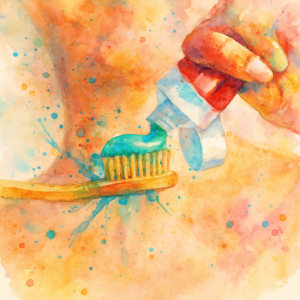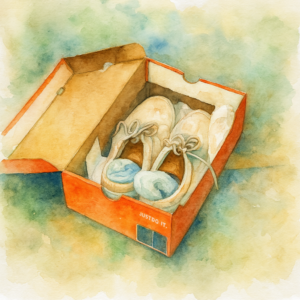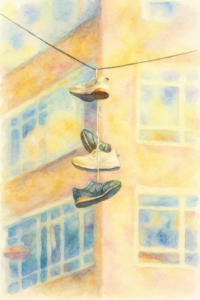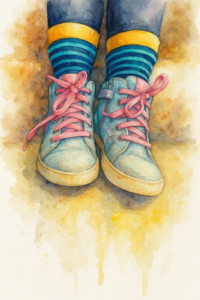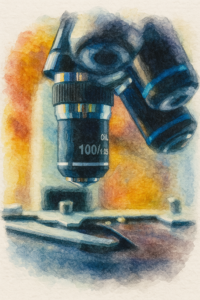Learn French with this clip from Les P’tits Bateaux. Find the full episode here. We do not own the content. The above audio sample and transcription is from Les P’tits Bateaux podcast. We do not own the content. Listen to the entire episode here. that reeks What’s opening up for you with this clip? Comment…
Start quiz, type what you hear, then join the conversation.
Did you find this one challenging or easy? Did you hear something diffferent? What surprised you? What levels did you complete? Comment below and share what’s opening up for you with this quiz.
Learn French with this clip from Les P’tits Bateaux. Find the full episode here. We do not own the content.
The above audio sample and transcription is from Les P’tits Bateaux podcast. We do not own the content. Listen to the entire episode here.
that reeks
What’s opening up for you with this clip? Comment below with what was surprising, easy, challenging and/or interesting.
The snippet in English
Find a translation of this snippet here, how much of this did you hear?
Je suis tout de suite avec Hirac Gurden pour te répondre. Vous êtes neurobiologiste, vous étudiez les odeurs, en particulier les liens avec notre cerveau. Alors dites-nous tout enfin !
— Alors Raphaël, merci pour cette super question. Effectivement, quand on a passé une journée avec nos pieds enfermés dans nos chaussettes, dans nos chaussures, qu’on a couru dans la cour de récré… Le soir, quand on enlève tout ça, ça empeste !
I’m here with Hirac Gurden to answer your question. You’re a neurobiologist who studies smells, particularly their connection to our brains. So tell us everything!
— Well, Raphaël, thank you for that great question. Indeed, when we’ve spent a day with our feet enclosed in our socks and shoes, running around the playground… In the evening, when we take them off, they stink!
The above translation from Deepl
What does “tout de suite” mean?
tout de suite — (right away / immediately)
Je viens tout de suite !
(I’m coming right away!)
Usage notes: Neutral and widely used in both spoken and written French. Can express urgency or promptness.
Cultural note: In real-life French usage, tout de suite doesn’t always mean instantly — it can be slightly delayed, especially with kids or in casual settings. Tone and context matter!
What does “cerveau” mean?
cerveau — (brain)
Le cerveau humain est capable de choses extraordinaires.
(The human brain is capable of extraordinary things.)
Usage notes: Neutral, used in both scientific and everyday contexts. Figuratively, can refer to intelligence (un cerveau = a smart person).
Cultural note: In informal French, calling someone un cerveau can be admiring or teasing, depending on tone — like saying “a brainiac” or “the brains of the operation.”
What does “enfin” mean?
enfin is often used as a filler or color word in spoken French, adding tone, hesitation, or softening rather than literal meaning (“finally”).
Enfin, je dis ça, mais chacun fait comme il veut.
(Well, I say that, but everyone does what they want.)
Common uses as filler:
To soften a statement or backpedal:
C’était un peu nul… enfin, pas complètement.
(It was kind of bad… well, not completely.)
To adjust or correct oneself:
Il est venu hier… enfin, je crois.
(He came yesterday… I think.)
To express mild impatience or exasperation:
Enfin ! Tu arrives enfin !
(Come on! You’re finally here!)
Cultural note: Native speakers often drop in enfin mid-sentence without changing the content — it adds a casual, conversational rhythm. Think of it like “well,” “I mean,” or “you know” in English.
What does “dans la cour de récré” mean?
dans la cour de récré — (in the schoolyard / on the playground)
Les enfants jouent à chat dans la cour de récré.
(The children are playing tag in the schoolyard.)
Usage notes: Informal, everyday expression. Récré is a shortened form of récréation (recess). Full version: la cour de récréation.
Cultural note: In France, la cour de récré is a central part of school life — where kids play, argue, make friends, and imitate adult behaviors. Many social dynamics (games, teasing, group roles) begin here, making it a rich metaphor in French media and storytelling.
What does “ça empeste” mean?
ça empeste — (that reeks / that stinks strongly)
Ferme la porte, ça empeste le poisson !
(Close the door, it reeks of fish!)
Difference from ça pue:
ça empeste is stronger and more intense — suggests something smells very bad and very strong
ça pue is more casual, more commonly used, and can be applied more broadly (literal or figurative)
Usage notes:
ça empeste is still informal, but less childlike than ça pue
Often followed by what it smells of: ça empeste la fumée / la sueur
Cultural note: Empester has an old root meaning “to spread plague” — so it carries a heavier tone. Today, it adds drama or exaggeration, often used by adults complaining seriously about a smell.
Les P’tits Bateaux Podcast
Official synopsis: Les enfants posent des questions, des spécialistes leur répondent. Jeunes (et moins jeunes !) peuvent poser toutes les questions possibles et imaginables directement par message vocal via franceinter.fr, sauf pendant les vacances.
I recently discovered this podcast from InterFrance and love it. It’s kids posing questions and the host brings in experts to explain. And it’s aimed at young French kids, not French learners. That’s my favorite kind of content. Being for French kids is what makes it so good.
You’ve got real people (a kid, a host, and an expert), all speaking real French — no AI generated stuff here. The kid asks a question, and then an expert explains it in short, clear language. There’s a ton of repetition, natural turns of phrase, and just enough challenge to keep your ears working.
And because it’s meant for French-speaking kids, the adults naturally explain things simply but not condescendingly. You get exposed to rhythm, tone, interjections (bah, ben, alors), and full sentences — but also some real dialogue dynamics. And that’s gold if you’re trying to move from textbook filler to actually speaking and thinking in French.
Improving your French Listening Comprehension with Podcasts
On this site, fast spoken French is finally accessible to all levels. The tool break podcasts into short clips each set to transcription fill-in-the-blank practice. My favorite practice in class is always dictées. While they can seem overwhelming at first, the confidence boost and skills payoff for doing the work pays off. They’re perfect for anyone at any level, from advanced students to those just starting.
We use podcasts and our practice exercises to make it possible for anyone, anywhere to immerse in French with fun and ease. Join us and enjoy French, one short clip at a time. Let’s learn together!
Make the most of the site:
- Daily Podcast Listening: Start your day with a French podcast from our collection. Choose episodes that align with your interests to keep it engaging.
- Active Listening Practice: As you listen, try to pick out key phrases and vocabulary. Use our daily quizzes to test your understanding and reinforce learning.
- Repeat and Shadow: Listen to the same podcast segment multiple times. Try to mimic the pronunciation and intonation to improve your spoken French.
- Note-taking: Jot down new words or phrases you encounter. Review these notes regularly to enhance vocabulary retention.
- Reflect and Respond: After each episode, summarize the main points in French, either in writing or aloud. This helps in consolidating your learning and improving your expressive skills.
- Read More:
- True Beginner or A1 Learners: discover tips learning with podcasts at an introductory level.
- Discover all the podcast clips on FrenchIRL organized by level.
- Top Tips: Here’s how I make the most of my own site.
I created the French In Real Life project because I wanted to understand more than just my teacher and youtubers who cater to learners. I wanted to understand the French I hear in France. I hope you can benefit as much as I have. Become a supporting member for access to all clips.
What’s opening up for you?
Comment below with what’s opening up for you with this clip. What do you love about this? What was challenging? What was easy? Share your learning progress below!
Learn French with this clip from Les P’tits Bateaux. Find the full episode here. We do not own the content. The above audio sample and transcription is from Les P’tits Bateaux podcast. We do not own the content. Listen to the entire episode here. that reeks What’s opening up for you with this clip? Comment…
Start quiz, type what you hear, then join the conversation.
Did you find this one challenging or easy? Did you hear something diffferent? What surprised you? What levels did you complete? Comment below and share what’s opening up for you with this quiz.
